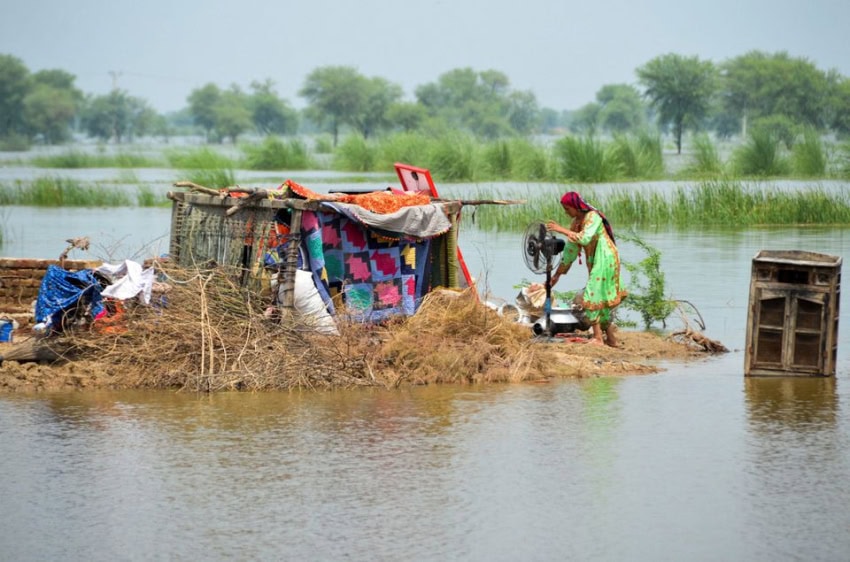Climate change is one of the most pressing challenges of the 21st century. It is characterized by changes in weather patterns and shifts in climatic temperatures, and it has a significant impact on various countries worldwide, including Pakistan which is among the top 10 nations most affected by changes in climate, leading to a reduction in agriculture production and droughts along with an increase in coastal erosion.
Recently, floods in Pakistan have caused extensive damage, devastating thousands of acres of land and displacing millions of people, resulting in loss of lives. According to preliminary estimates, floods have affected 33% of the country’s cultivated land, which is 7 million hectares out of a total of 22 million hectares. Initial assessments indicate damages of Rs298 billion in the agriculture and livestock sector. The agriculture sector plays a significant role in Pakistan’s economy, contributing 23% of GDP and 19% to gross output while also employing 37.4% of the labour force.
Looking at the past, the floods of 2010 hurt the agriculture sector, causing major crop production to decline by 15%. However, the destruction caused by the recent floods is of a higher magnitude and has flooded vast areas of cultivated land. This has led to a loss of 25-30% in agriculture production, including losses in livestock and crop damage. This contraction in the agriculture sector is expected to generate a gross output loss of $21 billion and a gross value addition loss of $14.7 billion, which is 3.85% of the current GDP.
This can be seen through the input-output model and will have a far-reaching impact on various sectors such as food, beverages, retail/wholesale, trade and chemicals, rubbers, and plastics. These sectors are likely to suffer heavy losses in gross output and value-added, which will impact the overall economy. The economic impact of this nature can be summarised as a reduction of GDP combined with higher inflation and increased unemployment.
The government should take steps to provide relief by renegotiating with the IMF, increasing the budgetary allocation of social safety nets, and announcing support prices for wheat and other edibles with subsidies on farm inputs and interest-free loans. Moreover, the government should focus on rebuilding infrastructure and providing support for the affected communities. It is important to note that climate change is a long-term issue that requires a comprehensive approach to mitigate its effects. This includes investing in sustainable agricultural practices, improving water management, and reducing greenhouse gas emissions.
In conclusion, climate change is a major challenge that affects countries around the world, including Pakistan. The recent floods in the country have caused devastating damage, with a significant impact on the agriculture sector, which is a crucial contributor to the country’s economy. The government must take immediate action to provide relief for affected communities and mitigate the long-term effects of climate change. Additionally, the government must work with the private sector and international organizations to address the root causes of climate change and implement effective solutions to mitigate its impacts.














